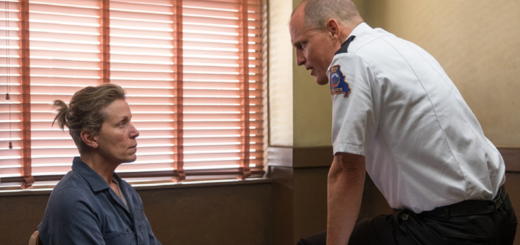Affirming Dignity

By MATT SHAPIRO
I picked up the book Dignity: Seeking Respect in Back Row America the moment I discovered Chris Arnade was back on Twitter.
I started noticing Arnade’s work a few years ago, as he wrote about meeting with people across the country, talking to them about… anything. About themselves, their towns, their families, their addictions, just about their lives. I would have characterized his politics as “left-ish?” and ended with the question mark because he spent so little time talking about himself, instead investigating people like the people in the towns that he and I left behind when we discovered that we were actually good at the sort of front-row success that is so valued in our culture.
Oh boy, there I go using the lingo of the book without explaining. If you’ll permit a short aside: Arnade uses the terms “front row” and “back row” to describe two distinct cultural attitudes. The “front row” people put education first and foremost. We go to college (usually high-ranking four-year-degree schools, none of this community college bullshit), we graduate into decent jobs, we move as the job requires, and, oh my God, do we have all the answers. That’s why we are front-row… because we had all the answers when the teacher called on us. We are secular, urban, wealthy, intelligent, liberal, and we know that everything will be fine if everyone just listens to us.
In contrast to us, there is the “back row.” The thing about the back row isn’t that they are dumb (although we constantly tell them they are and many of them believe us). It’s that the back-row doesn’t value the adulation of the teacher, doesn’t idolize education, materialism, and career like the front row does. Maybe the back row didn’t grow up respecting the rules or didn’t have the background to succeed. Maybe they didn’t make all the right choices in the first two decades of life or maybe they fell into addiction and never escaped it. Maybe they find value in their community that the front row simply does not and decide not to relocate to a place with better economic prospects because it would mean leaving their friends, family and church behind.
For whatever reason, these are the two competing forces that run through Dignity: An elite front row that knows what is best for everyone and a left-behind back row that holds different values and is sick to hell of being dismissed, humiliated and ignored.
Anyway, that’s the terminology background … back to the book.
Chris and I have interacted on Twitter and I really valued seeing his stories and his perspective. I was sad when he left and I hoped he was doing OK. When he came back, I saw that he was publishing a book and immediately ordered it.
Dignity is a depressing but gripping read. With short, to-the-point sentences, Arnade chronicles his journeys through forgotten America, through ghettos and McDonalds where people eat and shoot up and pray and suffer and steel themselves against forces both within and beyond their control. He never writes like an anthropologist studying people with a cold distance, yet he manages to give us their stories, in their own words, without judgment.
I can’t articulate how valuable that understanding quality is, because that’s the goddamn point of the book. Seeing these people who no one sees and taking them seriously on their own terms is a way of acknowledging their dignity. In the book, Arnade meets a man who lives on disability benefits and keeps a Confederate flag flying in the back of his truck. Most people I know would say, “There goes a racist.” But Dignity doesn’t.
“Flying from the back of his truck is a large Confederate flag. It is attached to a rusted pole held in place by a cement block, just behind the cab of his truck. I ask him about it. ‘I love the flag, because I love fishing and hunting. That is what it means to be from the South and I am proud of being from the South.’
Dignity – Respect, Recklessness, and Rebellion
When I mention that people see the flag as offensive and racist, he replies, “No, sir, that isn’t how I see it. For me, it is about Southern pride.”
And there is no other commentary. No further discussion of the man, his flag, or about how we can peer into his heart-of-hearts and tell him who he is, despise him, or dismiss him.
There is a dignity in that and that dignity is really important.
People Aren’t Projects
In the last year or so, my church group tried helping someone from the “back row.” This person was staying in a deeply subsidized rental outside Seattle, fighting off cancer with whatever Medicaid would provide, and living on food stamps, soup kitchens and charity.
When my group attempted to adopt her, we (a group of extremely front-row software developers and white collar professionals), tried to help her the way we think people need help. We tried to fix her. We gave her transportation when she needed it, got her a job that she couldn’t hold more than two weeks, and tried to come up with a budget that would work for her given income.
In essence, we were trying to bring her into our world, a world of meritocracy where we believe the problem people face is not quite being able to reach the bootstraps that will pull them up. We should help them get to the bootstraps.
This entire relationship was an abject failure. We looked at all the help we provided and asked why it wasn’t making a difference in any long-term way. She hated coming to our group because (as I realized later) our entire conversational structure is centered around materialism and careerism. Basic “nice to meet you” conversation starters all center around things that she felt were judgments on her.
“What do you do?”
“Where are you living?”
“What are your plans?”
“What school did you go to?”
“Have you been here long or did you move from out of state?”
These questions had never been a problem in our group before because, for anyone in the front row, they are open-ended introductions to tell people about yourself. They invite a conversation about relocation, education, or career that any front-row person is happy to answer. And maybe we went to the same school or had similar majors or you know, I visited Atlanta and it was a lovely place, did you go to the aquarium?
But for someone like our friend in the back row, these simple questions form a bedrock of humiliation. They isolate her from us, bringing forward the sense that she isn’t like us and that we feel like we are better than her.
This is hard to talk about because we certainly never meant to do this. None of this was born out of malice or unkindness or even ignorance. It wasn’t long before we learned to avoid certain questions or topics. But the die was cast. And it was insulting that we always kind of acted as her saviors. We sought out what she needed (or what we thought she needed) and we tried to provide it. To some within our group, this was the essence of Christian charity. We needed to help her, to provide for her. Giving up on her was not what we, as Christians, should do.
There’s a vision of “helping” people that is common in the front row, and it largely amounts to using our money or our abilities to alleviate material problems. We’re constantly asking “What can I do?” because we live in a world in which our effort plus money plus time has solved most of our problems. So we keep laying our blueprint of life and success on top of people whose foundation is simply not ours.
We shouldn’t be adopting her. She wasn’t a child. She wasn’t our project. She’s a person with dignity, however damaged and hurt by this world. It’s not our job to fix her or to bring her into our world. Sometimes just listening, without expectations or judgment, is all we can do. To the secular ear, this sounds dangerously like “thoughts and prayers” when the appropriate front row response is action. Change laws, give money, volunteer. But what if….
…and I really want people to hear me when I say this because we need to really think about it…
What if there *isn’t* something we can do? What if there are limits to the problems we can solve? What if our solutions are bad? What if we’re making it worse?
Do I Value Dignity?
Dignity has come at a strange time for me. I’m so solidly, deeply entrenched in the front row, I used to brag about it. When an article would come out about robots taking jobs, I’d haughtily claim to be unworried because I’d be the one designing the robots.
Something happened to me, and I’m not 100% sure what.
I think part of it was the polarization during the 2016 election, which really set a stark line between the front row and the back row. People I knew and respected in the front row who were always so moderate and thoughtful became almost violently angry at the people who elected Trump. Never a Trump supporter, I still understood many of the positions his supporters took. It threw me a little to see people talking about the Trump electorate as if they were from some other planet, a very evil, cruel planet that cannot be coddled and must be overcome.
I think a part of it was my dad. Not the part where my dad supported Trump, but the part where he died.
I had the great blessing to be there just before my dad passed. I helped him move out of his house in semi-rural Georgia a week before he died. (I wrote about it extensively on Medium.)
Twenty years ago, semi-rural Georgia was a lot more rural. The people I knew from church (which was most of the people I knew) were a little more front-row than the surrounding area, but there were plenty of rednecks and good ol’ boys in our group.
Like Arnade, I got out of there. I saw my movement to Salt Lake City for a high-tech healthcare software job to be a sign of pride. Then my move to Seattle to work for Microsoft meant that I was among the best, in a top tier of success.
But I missed my family and I missed my home. When it came time for my parents to move as my dad’s health failed, it wasn’t me helping them but the ones who stayed behind. That kid who got married right out of high school, the one we all thought was good for nothing, he’s the guy who wrangles a group together to move a lifetime of stuff out of their house.
At my dad’s funeral, I talked with a lot of people I haven’t seen in over a decade. The church I went to growing up is mostly still there … but it’s a lot older. My family of six kids was not out of the ordinary when I was in high school, but things have changed. The church as a whole probably had three times more kids than adults when I was growing up. Some of those kids stuck around and raised their families in the church, but most did not.
I talked with lots of my dad’s old friends, teachers, pastors, hiking buddies, all the people who populated my teenage years and came together to say goodbye to my dad. I heard a lot of stories about kids growing up, moving away. Many of the “success stories” (as I had learned to measure success) are tinged with loss. Many kids move away, abandon the faith and buy into a culture that separates them from their family, from their homes. Their parents are happy they are financially doing well for themselves (many who stayed are not) but more than one family wishes the kids had stayed here in Georgia.
I’ve thought about moving back to be near my mom and siblings, but I would most likely have to abandon the career I’ve built in West Coast tech culture. Even if you could guarantee that I would have a more fulfilling community in Georgia, I don’t know if I could do that. That front-row part of me screams against it.
What Do We Pass On?
I harbor no small amount of jealousy for my friends who grew up in Seattle. They have it all. They get the good jobs and they also get to have their families nearby. They get to have that sense of home that I’ve lost. They are second- and third-generation front-row citizens, having grown up entirely within a culture that valued education, set them early on a path for high-paying jobs.
But they are also the people I know who most despise the back-row mentality. Their vision of helping the back row is to let the government give them enough money that they don’t starve and then hopefully they will shut up and let us smart people do our thing. They have very little sympathy for rural culture or values. They don’t see that culture as worthy of dignity on its own terms. There is this sense that the only real way to help them is to give them the opportunity and ability to become more like us. Their values are bad and their culture is bad and they aren’t valuable in and of themselves; they are valuable because they could become us if they just get the right education and resources.
The people I know who best understand the values of a back-row America are the people who came from it. Chris Arnade understands it and has sympathy for it. So do Rod Dreher, J.D. Vance and David French. They’ve lived in and are still in touch with parts of America that my front-row friends so despise.
This makes me worry about my kids. They are second-generation front-row kids who have never known anything else. They live in extremely front-row America, surrounded by a monolithic culture that I don’t think I can ever consider my home. They’ll never know people from the South, from a rural area. I worry that they will grow up in a culture that despises and vilifies the people I know back home.
People talk about polarization in our culture, and I think this clear divide is a part of it. We cluster in our enclaves and never venture out. We’re sifting into two cultures that hardly know any people in the other culture and so have never experienced anything but antipathy toward them. The godless liberals and the idiot conservatives. Pick one or the other, those are your only choices.
Oh, that’s right. This was supposed to be about Chris’s book.
Dignity is a great book. I loved it. It made me miss my friends and family. It made me feel sick about our culture. It made me want to help and then remember that the instinct I have to help is, in and of itself, an indication of my status as a “front-row” citizen. If nothing else, I’m glad Dignity reminded me of the gaps in values and culture that seem invisible but are actually the very stuff of life.




Thank you for writing this, it very much reflects experiences, tensions & conflicting feelings from my own life. I’m the parent whose kids moved away and yes, I’m SO proud of them and happy for the lives they’ve built for themselves. But I also feel sorrow for what they are missing by leaving behind family and faith structures that would support them when things get rough. I also know they feel some of the same tension from attitudes they encounter about the different culture “back home.” I think you really nailed the thing that makes Arnade’s work so compelling. He gives me so much food for thought.
This really makes you stop and think…
This is what life is all about…
Thank you
I am in a similar situation only in Canada. None of my grandparents graduated high school. But, my parents did very well for themselves in the tech community in Waterloo Canada. I now work in finance in downtown Toronto. There’s this utter lack of understanding of how back row people live. Of what matters to them. There’s such arrogance. I hate it. The church I grew up in is now only filled with old people. There’s been a bifurcation, I can see it myself between myself and my cousins. I hope I can instill in my kids the dignity that everyone who gets up in the morning and goes to work has. But it’s tough, all of my Wife’s Grandparents are University graduates. The community of the church, of the group is breaking down with nothing to replace it. Those of us who bifurcated to the top will be ok, but I deeply worry for those who bifurcated to the bottom. Where will the sense of community come from?
When someone is hit with something like cancer, which other than lung or skin cancer, is often largely beyond an individual’s control, they can understandably fall into “learned helplessness”.
There’s a brilliant YouTube video about a disabled veteran man, called “Never, Ever Give Up. Arthur’s Inspirational Transformation!”. You should watch it. Study it.
And also study the man who helped restore the veteran’s sense of personal power and belief in himself – Diamond Dallas Page. I had no idea who he was before that video with the veteran. I looked him up, and apparently he is a WWE style “pro wrestler” which didn’t really enhance my opinion of him.
What did enhance my opinion of him, is that in another YouTube video – “Diamond Dallas Page: Don’t Call It Yoga, Brother” – rather than coming off as some kind of elite who possesses incredible expertise that you, the viewer don’t have or cannot otherwise access, he comes off as a very human, vulnerable man, who has overcome serious challenges, yet is humbly relating in very simple terms how his technique works and how it developed out of his life experiences.
Instead of coming from the angle, “I am better and you are worse. Be better like me by doing like me.” He comes from the angle “Hey, here’s how this thing is useful! Why not try it out?”
Perhaps some people would find Steve Jobs or Gordon Ramsey yelling at them to be more useful. Perhaps some people would find Elon Musk telling them that “If you need me to give an inspirational speech to start a company, don’t start one” more useful.
But many people are helped by the approach taken there by Diamond Dallas Page. And I definitely don’t think that all such people are in the “back-row”.